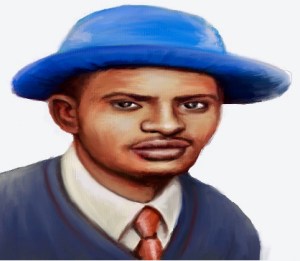In the wake of the tragic failure of Eritrea’s 1998-2000 border war with Ethiopia, senior members of the Eritrean government began a campaign to bring about the democracy that the 30 year war of liberation had been fought for.
They formed the G-15: men and women who challenged President Isaias to give the Eritrean people the freedoms they had been promised. In dawn raids on 18 and 19 September 2001 the president’s notorious security forces rounded them up and jailed them. None have ever been taken before a court or convicted of any crime. They have rotted in prison ever since.
At the same time independent newspapers were closed and journalists arrested. The nightmare of repression which has hung over Eritrea ever since had begun.
Now, on the 20th anniversary of these terrible events, we recall those who have been in Eritrea’s jails ever since. Their families have been deprived of them; their friends have lost them. But they have never been forgotten. Nor has the flame of hope that they ignited – of a proud, free and democratic country.
We have profiles of these brave men and women – and will share them daily.
 Dawit Habtemichael graduated from the University of Asmara with a BA degree in physics in 1977. He taught Physics at a Secondary School.
Dawit Habtemichael graduated from the University of Asmara with a BA degree in physics in 1977. He taught Physics at a Secondary School.
After Eritrea independence in 1991, Dawit set up an independent Tigrinya weekly newspaper in Asmara, along with his friends, Mathewos Habteab and others. The newspaper was called “Mekalih” (Echo) and Dawit was a member of the editorial board. As the only Asmara resident board member, he was assigned to cover stories in the city. Dawit carried out his journalism in addition to his teaching duties.
In October 2000, a group of Eritreans (G-13) signed the “Berlin Manifesto”. The G-13 comprised of academicians, former freedom fighters and former government official. They called for the President to implement the constitution, implement the rule of law and ensure proper governance and accountability in Eritrea. The government owned media outlets were not permitted to publish the “Berlin Manifesto” but all the independent newspapers did despite the security services efforts to stop them.
As expected, the security services arrested Dawit and other editors; Yousif Mohammed Ali from “Tsigenay” (Honey), Milkias Mihreteab from “Keste Debena” (Rainbow), as well as the journalist, Yakonb, Russom and others. According to testimonials from those who were arrested with him, Dawit was always optimistic that they would be released one day. He would say, “we have not committed any crime” and they would eventually be freed.
Dawit was released from prison after the end of the border war with Ethiopia and when the G-15 representing ministers and other high government officials and members of the Eritrean National Assembly became active. They challenged President Isaias Afeworki by calling for a meeting of the National Assembly, demanding reforms and accountability. The G-15 were arrested by Eritrean security services on 18 and 19 September 2001 and they have not been seen or heard from ever since.
Following the G-15 arrest, the government passed a proclamation banning all independent newspaper. Most of the journalists were then arrested around 23 September but Dawit went missing. He then decided to resume his teaching and was arrested by the security services in class in front of his students.
Dawit’s only daughter, Ariam, was born on the 10 September 2001 a couple of weeks before her father’s arrest and now lives in Germany where she is studying Medicine. Ariam says, “Whenever I score good marks, I miss my father not being there to share it with me, to be happy and proud of me. I miss his love and care and I envy the children whose parents are with them.”